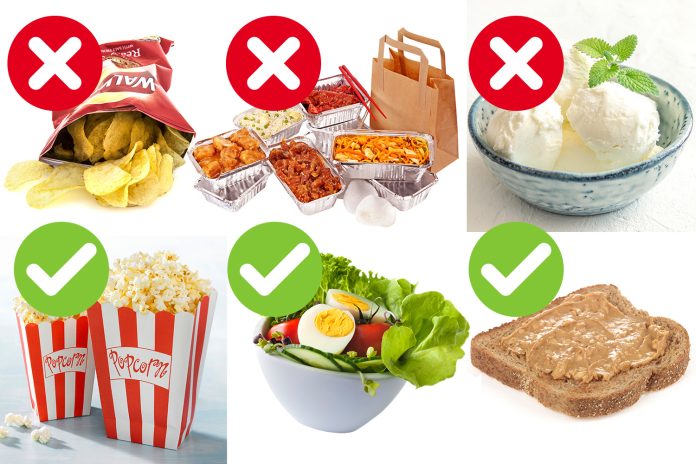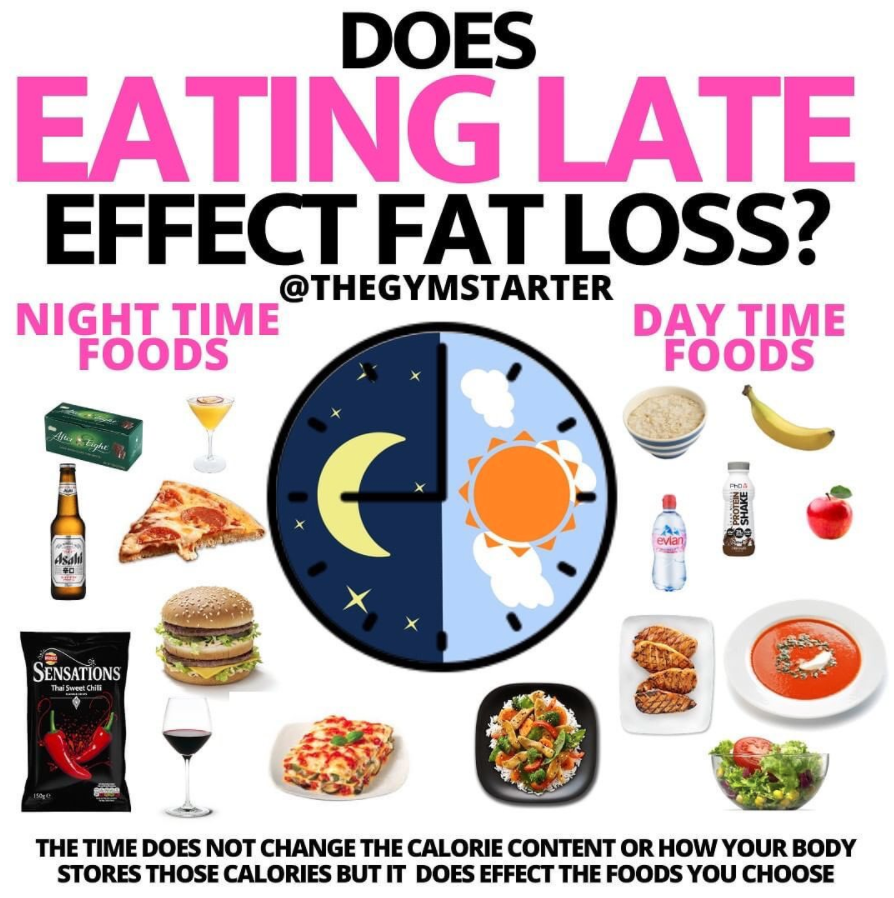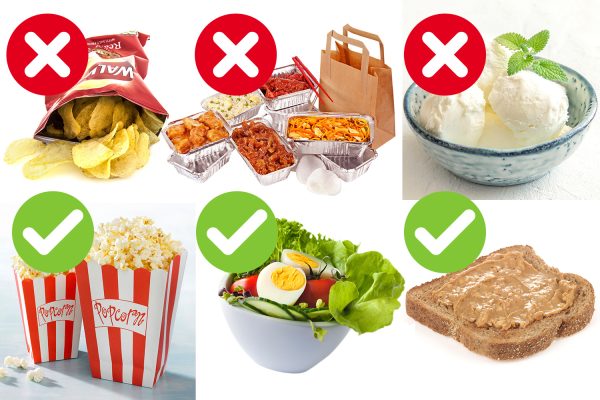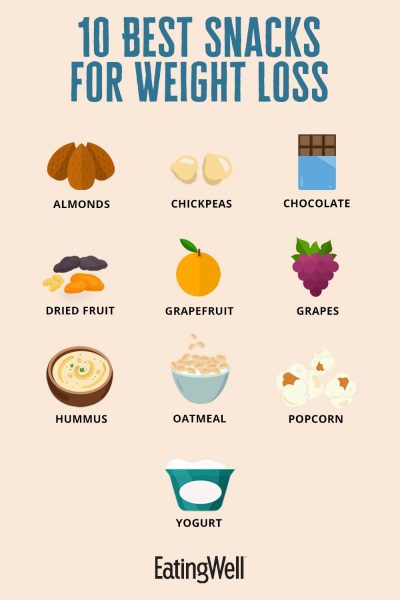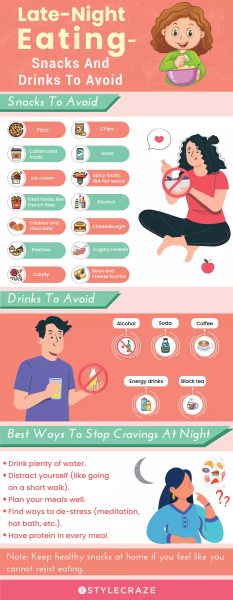Late night snacking can be a major obstacle when it comes to achieving your weight loss goals, but don’t worry, there are effective strategies to help you overcome this challenge. By understanding the underlying reasons behind your late night cravings and implementing simple yet powerful techniques, you can reclaim control over your eating habits and make progress towards a healthier lifestyle. In this article, you’ll discover expert tips on how to curb late night snacking, allowing you to achieve better weight loss results and wake up feeling energized and proud of your choices. It’s time to put an end to those midnight trips to the pantry and start making positive changes for your overall well-being.
Review contents
1. Understanding Late Night Snacking and Weight Loss
Losing weight can be a challenging journey, and late night snacking can often sabotage your progress. Late night snacking refers to consuming food or snacks after dinner and before going to bed. It is a common habit for many people, but it can hinder weight loss efforts for several reasons.
1.1 Why Late Night Snacking Can Sabotage Weight Loss
Late night snacking can sabotage weight loss because it often involves consuming high-calorie and unhealthy foods. In the evening, our willpower and self-control can be weaker, making it more likely for us to indulge in unhealthy snacks. These snacks are typically high in sugar, unhealthy fats, and empty calories. Consuming these foods in excess can lead to weight gain and hinder your weight loss goals.
1.2 The Impact of Late Night Snacking on Metabolism
Late night snacking can also negatively impact your metabolism. Our metabolism naturally slows down when we sleep, which means the calories we consume during late night snacking are not burned as efficiently as during the daytime. This can lead to weight gain and hinder your weight loss progress.
1.3 Emotional Aspects of Late Night Snacking
Emotional factors can also contribute to late night snacking. Many people turn to food as a way to cope with stress, boredom, or emotional distress. This emotional eating can be a barrier to weight loss and can lead to consuming unnecessary calories late at night.
1.4 Importance of Addressing Late Night Snacking for Better Weight Loss
Addressing late night snacking is crucial for better weight loss results. By eliminating or reducing late night snacking, you can reduce your overall caloric intake and create a healthier eating pattern. This will allow your body to burn stored fat more efficiently, leading to improved weight loss outcomes.
2. Identifying Triggers and Overcoming Temptation
To stop late night snacking, it is essential to identify your personal triggers and find strategies to overcome temptation.
2.1 Self-Reflection and Understanding Personal Triggers
Self-reflection is the first step in identifying your personal triggers for late night snacking. Take some time to think about why you tend to snack at night. Is it out of habit, boredom, stress, or emotional reasons? Understanding your triggers will help you develop personalized strategies to overcome them.
2.2 Removing Unhealthy Snack Options from Your Environment
One effective way to overcome temptation is by removing unhealthy snack options from your environment. Out of sight, out of mind! Clear your pantry and refrigerator of any tempting snacks or replace them with healthier alternatives. By having a snack-free environment, you eliminate the easy accessibility to unhealthy options.
2.3 Creating a Healthy Snack Plan and Preparing in Advance
Creating a healthy snack plan and preparing in advance can help you avoid late night snacking. By having nutritious and portion-controlled snacks readily available, you can satisfy your cravings without derailing your weight loss efforts. Plan and prepare your snacks during the day, so you have healthier options on hand in the evening.
2.4 Finding Alternative Activities to Distract from Snack Cravings
Finding alternative activities to distract yourself from snack cravings is a useful strategy. Engage in activities that keep your mind and body occupied, such as going for a walk, reading a book, practicing a hobby, or engaging in a hobby. By shifting your focus away from food, you can curb your late night snacking urges.
2.5 Utilizing Mindfulness and Self-Control Techniques
Practicing mindfulness and self-control techniques can help you overcome the temptation to snack late at night. When cravings arise, take a moment to pause and evaluate whether you are genuinely hungry or simply tempted. Engage in deep breathing exercises or other mindfulness techniques to help you develop self-control and make healthier choices.
This image is property of images.squarespace-cdn.com.
3. Establishing Healthy Eating Patterns Throughout the Day
Establishing healthy eating patterns throughout the day is essential for preventing late night snacking. Here are some strategies to consider:
3.1 The Importance of Balancing Meals and Nutrients
Balancing your meals and nutrients throughout the day is crucial for preventing excessive hunger and cravings at night. Aim to include a mix of carbohydrates, proteins, and healthy fats in each meal to keep you satisfied and energized. This balance can help regulate your blood sugar levels and prevent the urge to snack excessively in the evenings.
3.2 Implementing Regular Meal Times
Implementing regular meal times can help regulate your hunger and prevent the need for late night snacking. Try to establish a consistent schedule for breakfast, lunch, and dinner, and avoid skipping meals. By providing your body with regular nourishment, you reduce the chances of feeling excessively hungry and reaching for unhealthy snacks later in the evening.
3.3 Prioritizing Protein and Fiber for Satiety
Protein and fiber are two essential nutrients for promoting satiety and preventing late night snacking. Include protein-rich foods like lean meats, poultry, fish, tofu, beans, and nuts in your meals to keep you full for longer. Additionally, incorporate fiber-rich foods like fruits, vegetables, whole grains, and legumes to aid digestion and promote feelings of fullness.
3.4 Avoiding Extreme Calorie Restriction
Avoiding extreme calorie restriction is crucial for preventing late night snacking. When you severely restrict your calorie intake during the day, your body may crave extra calories at night. Instead, focus on creating a moderate calorie deficit that allows you to lose weight gradually and sustainably without experiencing excessive hunger or cravings.
3.5 Incorporating Mindful Eating Practices
Incorporating mindful eating practices is beneficial for establishing healthy eating patterns and preventing late night snacking. Pay attention to your body’s hunger and fullness cues during meals. Eat slowly and savor each bite, focusing on the taste and texture of your food. By practicing mindful eating, you can improve your relationship with food and reduce mindless snacking tendencies.
4. Creating a Sleep-Friendly Environment
Creating a sleep-friendly environment is essential for preventing late night snacking as poor sleep can increase cravings and hunger. Consider the following strategies:
4.1 The Connection Between Sleep and Late Night Snacking
There is a strong connection between sleep and late night snacking. Lack of quality sleep can disrupt your appetite-regulating hormones, leading to increased cravings, especially for high-carbohydrate and high-calorie foods. By prioritizing sleep, you can reduce the likelihood of succumbing to late night snacking urges.
4.2 Establishing a Consistent Sleep Schedule
Establishing a consistent sleep schedule can help regulate your body’s internal clock and improve the quality of your sleep. Aim to go to bed and wake up at the same time each day, even on weekends. By adhering to a regular sleep routine, you can reduce late night snacking tendencies caused by irregular sleep patterns.
4.3 Optimizing Sleep Quality through Bedroom Environment
Optimizing your bedroom environment can significantly improve the quality of your sleep and reduce the likelihood of late night snacking. Create a comfortable and relaxing sleep environment by ensuring your bedroom is dark, cool, and quiet. Consider utilizing blackout curtains, earplugs, or a white noise machine to promote better sleep.
4.4 Managing Stress and Promoting Relaxation Before Bed
Stress can contribute to late night snacking and disrupt your sleep. Prioritize stress management techniques, such as regular exercise, meditation, deep breathing exercises, or journaling, to promote relaxation before bed. By reducing stress levels, you can decrease the likelihood of turning to food for comfort and experiencing disturbed sleep.
4.5 Seeking Professional Help for Sleep Disorders
If you consistently struggle with sleep disorders, such as insomnia or restless leg syndrome, consider seeking professional help from a healthcare provider or sleep specialist. They can evaluate your sleep patterns, provide guidance on improving sleep quality, and explore potential treatments or interventions to address any sleep disorders that may be contributing to late night snacking.
This image is property of www.thesun.co.uk.
5. Utilizing Strategies to Curb Nighttime Hunger
Curb your nighttime hunger with these effective strategies:
5.1 Evaluating Daily Caloric Intake and Adjusting if Necessary
Evaluate your daily caloric intake and determine if adjustments are necessary. Consuming an adequate number of calories throughout the day can reduce nighttime hunger. Consult with a registered dietitian or nutritionist who can assess your individual needs and help you establish a balanced and personalized meal plan.
5.2 Focusing on Nutrient-Dense Foods during the Day
Focus on consuming nutrient-dense foods during the day to keep you satisfied and reduce cravings at night. Include plenty of fruits, vegetables, whole grains, lean proteins, and healthy fats in your meals to provide essential nutrients and promote satiety. Nutrient-dense foods can help regulate your appetite and prevent excessive hunger later in the evening.
5.3 Incorporating Protein and Healthy Fats in Evening Meals
Incorporating protein and healthy fats in your evening meals can help curb nighttime hunger. These nutrients digest slowly and keep you feeling full for longer periods. Include sources of protein, such as fish, poultry, tofu, yogurt, or legumes, and healthy fats like avocados, nuts, seeds, or olive oil in your dinner to promote satiety and reduce cravings before bed.
5.4 Drinking Enough Water and Staying Hydrated
Drinking enough water and staying hydrated throughout the day can help manage nighttime hunger. Sometimes, dehydration can be mistaken for hunger. Keep a water bottle with you throughout the day and aim to drink at least eight glasses of water. By staying hydrated, you can reduce the chances of mistaking thirst for hunger and prevent unnecessary late night snacking.
5.5 Trying Natural Appetite Suppressants
If you continue to struggle with nighttime hunger, consider trying natural appetite suppressants. Some herbal teas, such as chamomile or ginger tea, can help reduce appetite and promote relaxation. Additionally, incorporating spices like cinnamon or cayenne pepper into your meals may help curb cravings and decrease late night snacking urges.
6. Engaging in Regular Physical Activity
Regular physical activity is essential for weight loss and can also help regulate appetite and minimize late night snacking. Consider the following strategies:
6.1 The Role of Exercise in Appetite Regulation
Exercise plays a significant role in appetite regulation. Physical activity can help reduce levels of the hunger hormone ghrelin and increase levels of appetite-suppressing hormones like peptide YY and glucagon-like peptide-1. By engaging in regular exercise, you can naturally regulate your appetite and reduce the urge to snack late at night.
6.2 Finding an Exercise Routine That Fits Your Lifestyle
Finding an exercise routine that fits your lifestyle is important for long-term adherence and success. Choose activities that you enjoy and are more likely to stick with. Whether it’s going for a walk, jogging, cycling, swimming, dancing, or participating in group fitness classes, find activities that bring you joy and make physical activity a regular part of your routine.
6.3 Exploring Different Types of Physical Activities
Explore different types of physical activities to keep things interesting and prevent boredom. Mix up your routine by trying various exercises, such as strength training, cardio workouts, yoga, or Pilates. By incorporating a variety of activities, you can target different muscle groups, improve overall fitness, and increase your calorie burn to support weight loss.
6.4 Incorporating Strength Training for Muscle Development
Incorporating strength training into your exercise routine is beneficial for muscle development and weight loss. Building lean muscle mass increases your resting metabolic rate, allowing you to burn more calories throughout the day, including during sleep. Engage in resistance exercises using weights, resistance bands, or your body weight to build strength and support weight loss efforts.
6.5 Being Consistent and Making Exercise Enjoyable
Consistency is key when it comes to exercise and weight loss. Make exercise a regular part of your routine by scheduling it in and prioritizing it. Additionally, make sure to choose activities that you enjoy. When you find exercise enjoyable, you are more likely to stick with it long-term and reap the physical and mental health benefits.
This image is property of www.eatingwell.com.
7. Seeking Support from Others
Weight loss can be a challenging journey, and seeking support from others can provide the encouragement and accountability you need. Consider the following strategies:
7.1 Sharing Your Weight Loss Journey with Family and Friends
Share your weight loss journey with your family and friends. Informing them of your goals and intentions can provide a support system that can cheer you on and hold you accountable. Having loved ones who are aware of your efforts can offer motivation, understanding, and encouragement throughout your weight loss journey.
7.2 Joining a Support Group or Weight Loss Program
Consider joining a support group or weight loss program to connect with others who share similar goals. Support groups provide a sense of community and understanding, where you can share experiences, exchange tips, and provide mutual support. Weight loss programs often offer structured guidance, accountability, and professional expertise to help you achieve your goals.
7.3 Seeking Professional Guidance from a Registered Dietitian
If you require personalized guidance and expertise, consider seeking professional help from a registered dietitian. A registered dietitian can assess your individual needs, develop a customized meal plan, and provide ongoing support and guidance throughout your weight loss journey. They can help you navigate challenges, address nutritional concerns and provide evidence-based strategies to overcome late night snacking.
7.4 Engaging in Accountability Partnerships
Find an accountability partner who shares similar goals and holds each other accountable. This can be a friend, family member, or even an online buddy. Regular check-ins, sharing progress, and offering support and encouragement can help you stay motivated and committed to your weight loss efforts.
7.5 Utilizing Online Communities for Support and Motivation
Take advantage of online communities and forums focused on weight loss for support and motivation. Participating in virtual communities allows you to connect with people on similar journeys, share experiences, exchange advice, and provide support. These communities can offer a sense of camaraderie, motivation, and a wealth of knowledge to help you overcome late night snacking and achieve your weight loss goals.
8. Overcoming Obstacles and Staying Motivated
Overcoming obstacles and staying motivated is crucial for long-term weight loss success. Consider the following strategies:
8.1 Dealing with Setbacks and Learning from Mistakes
Setbacks and mistakes are a natural part of any weight loss journey. Instead of getting discouraged, view setbacks as learning opportunities and chances for growth. Identify what triggered your late night snacking and strategize ways to avoid similar situations in the future. Remember that one setback does not define your progress, and you have the power to get back on track.
8.2 Rewarding Yourself for Achieving Milestones
Rewarding yourself for achieving milestones is essential for staying motivated. Set small, achievable goals along the way and celebrate your progress. Treat yourself to non-food rewards, such as a spa day, a new book, or a new workout outfit. By acknowledging and celebrating your achievements, you create positive reinforcement and make your weight loss journey more enjoyable.
8.3 Tracking Progress and Celebrating Non-Scale Victories
Track your progress beyond just the number on the scale. Non-scale victories, such as increased energy levels, improved sleep quality, or fitting into smaller clothing sizes, are worth celebrating. Keep a journal or use a progress tracker app to record your achievements and remind yourself of the positive changes you have made.
8.4 Developing Healthy Coping Mechanisms for Stress
Developing healthy coping mechanisms for stress is vital for preventing late night snacking. Find alternative ways to deal with stress, such as practicing mindfulness, engaging in deep breathing exercises, journaling, or engaging in activities that bring you joy. By replacing emotional eating with healthier coping mechanisms, you can manage stress more effectively and reduce the urge to snack late at night.
8.5 Adopting a Positive Mindset for Long-Term Success
Adopting a positive mindset is key for long-term weight loss success. Believe in yourself and your ability to achieve your goals. Focus on the progress you have made rather than perfection, and practice self-compassion. Embrace the journey as an opportunity for growth, learning, and self-improvement. By cultivating a positive mindset, you can overcome obstacles and stay motivated throughout your weight loss journey.
This image is property of cdn2.stylecraze.com.
9. Understanding the Role of Professional Help
Sometimes, seeking professional help becomes necessary for overcoming late night snacking and achieving weight loss goals. Consider the following aspects:
9.1 When to Consider Seeking Professional Help
It may be time to consider seeking professional help if you are consistently struggling with late night snacking, weight loss plateaus, or emotional eating. Professional help can provide the expertise and guidance needed to address underlying issues and develop effective strategies for sustainable weight loss.
9.2 Consulting with a Registered Dietitian
Consulting with a registered dietitian can be incredibly beneficial when it comes to overcoming late night snacking. A registered dietitian can provide personalized nutrition counseling, create a tailored meal plan to fit your needs, and offer strategies to address late night cravings. They can also help you navigate any underlying emotional or psychological aspects related to your eating habits.
9.3 Working with a Therapist or Counselor
Sometimes, late night snacking may be linked to emotional or psychological factors that require professional intervention. Working with a therapist or counselor who specializes in eating disorders or behavioral therapy can help you explore and address the root causes of your late night snacking habits. They can provide valuable insights and guide you towards developing healthier coping mechanisms.
9.4 Participating in Medical Weight Loss Programs
For individuals with more significant weight loss goals or medical considerations, participating in medical weight loss programs may be beneficial. These programs often involve a multidisciplinary approach with input from healthcare professionals, including doctors, dietitians, psychologists, and exercise specialists. They can provide comprehensive guidance, support, and medical supervision throughout your weight loss journey.
9.5 The Benefits of Customized Support and Guidance
Customized support and guidance from professionals can offer tailored strategies and individualized attention to address your specific late night snacking challenges. They can help you develop a personalized plan to overcome late night snacking, provide ongoing support, and monitor your progress. The benefits of customized support extend beyond weight loss and can contribute to overall health and well-being.
10. Maintaining and Sustaining Progress
Maintaining and sustaining progress is essential for long-term weight loss success. Consider the following strategies:
10.1 Developing Healthy Habits for Long-Term Weight Maintenance
Focus on developing healthy habits that can be sustained in the long run. Incorporate the strategies mentioned throughout this article into your daily routine and cultivate a healthy relationship with food. By adopting a balanced and mindful approach to eating, you can maintain your weight loss progress and prevent late night snacking from derailing your efforts.
10.2 Setting Realistic and Achievable Goals
Set realistic and achievable goals to stay motivated and prevent feelings of discouragement. Break your long-term weight loss goals into smaller milestones and celebrate each achievement along the way. By setting attainable goals, you create a sense of accomplishment and maintain momentum throughout your weight loss journey.
10.3 Continuing with Regular Exercise and Physical Activity
Regular exercise and physical activity should remain a key component of your weight maintenance plan. Aim to engage in at least 150 minutes of moderate-intensity aerobic exercise each week, along with resistance training. By making exercise a regular part of your routine, you can preserve lean muscle mass, support your metabolism, and prevent weight regain.
10.4 Implementing Healthy Snack Substitutions
Implementing healthy snack substitutions can help prevent late night snacking and support weight maintenance. Replace unhealthy snack options with nutritious alternatives, such as fruits, vegetables, Greek yogurt, nuts, or air-popped popcorn. By making healthier choices, you can satisfy your cravings without derailing your weight loss progress.
10.5 Celebrating Milestones and Practicing Self-Care
Continue to celebrate milestones and practice self-care even after achieving your weight loss goals. Regularly acknowledge your achievements and reward yourself with non-food rewards. Additionally, prioritize self-care activities, such as getting enough sleep, managing stress, and engaging in activities that bring you joy. By prioritizing self-care, you maintain a healthy mindset and prevent late night snacking as a form of emotional or stress-related coping.
By following these comprehensive strategies, you can stop late night snacking and achieve better weight loss results. Remember, the journey to weight loss and maintenance is unique for each individual. Focus on adopting healthy habits, seeking support when needed, and prioritizing self-care to create a sustainable lifestyle that supports your long-term goals. Good luck!
This image is property of cdn.shopify.com.

